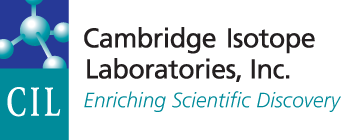Application Note 49
Standardizing Quantitative Metabolomics Analyses Through the QReSS™ Kit
Andrew J. Percy1, Robert Proos2, Zuzana Demianova3, Krista Backiel1, Baljit K. Ubhi4
1. Cambridge Isotope Laboratories, Inc., Tewksbury, MA USA
2. SCIEX, Framingham, MA USA
3. SCIEX, Brea, CA USA
4. SCIEX, Redwood City, CA USA
Introduction
One of the incessant challenges in mass spectrometry (MS)-based “omics” is the qualification of methods and instrument platforms. Required are materials that can be used to routinely test platform performance over time and to test assay effectiveness throughout all phases of a work list.1,2 Such evaluations are necessary as it provides an indicator to the effectiveness of an analytical method and platform. Errors or deficiencies observed in the performance would then cue corrective action. This could help save precious samples and experimental resources, while also extend column lifetimes.
In metabolomics, the test materials would be metabolites, with the end product being a mixture that can be readily (and routinely) applied for quality control (QC) and system suitability testing (SST). The metabolites should be carefully selected and the mix well characterized to enable reliable and continuous application. Ideally, the metabolites should be diverse and embody broad coverage, while not being overly complex in number as that could complicate the multiplexed analysis of experimental samples. A commercially available kit that embodies these requisites, while additionally offering the benefit of identification and quantification in MS/MS applications, is QReSS™ (Quantification, Retention, and System Suitability).
The QReSS kit (MSK-QReSS-KIT) comprises two dried-down mixtures of stable isotope-labeled metabolites and a document package. Included with the package is a user manual, which outlines example procedures and illustrates sample results for user reference. These mixes are well suited for qualification applications due to the carefully selected compounds, their inherent characteristics (e.g., molecular weight), and their experimental tendencies (e.g., broad elution behavior, absent from solubility issues or stability concerns). Discussed here is the development of the QReSS mixes, experimental methods, and example reversed phase (RP) LC-MS/MS results to illustrate the products utility in untargeted/targeted MS metabolomics.
Key Features/Benefits of QReSS Kits
• stable and reproducibly prepared mixes
• predominantly 13C and/or 15N metabolites
• concentration-balanced metabolites
• user manual supplied for method guidance
• broad coverage in metabolic compound class, molecular weight, and retention times
• enables reliable performance tracking
• allows qualification and quantification
Read more by downloading the application note.
